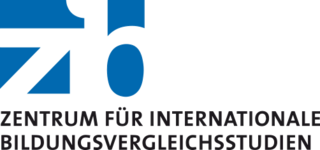Correlates of creativity and its assessment
Sabine Patzl, Research associate TUM
The working title of the Doctoral thesis:
Correlates of creativity and its assessment
In the past, creative thinking/creativity has been associated, e.g., with the development of (inter-) individual skills, problem-solving competence, academic performance, social engagement, and professional success. Creativity is a multidimensional construct that can be described on various observation levels (e.g., individual, culture, group, organization). Moreover, this results in various measurement approaches to creativity (e.g., creative achievement, creative cognitive potential, or self-assessed creativity). The relevance of a measurement approach is often measured in terms of its differentiation from other characteristics (e.g., intelligence or personality). Therefore, the dissertation project aims at investigating different measurement approaches to creativity and thus, validate them using meta-analytical as well as international data from the 2022 PISA study.
Study 1:
The first study focuses on the relationship between intelligence, psychometrically assessed, and self-assessed divergent thinking. A person's creative potential is often measured by divergent thinking, first described by Guilford (1956). However, consensus still has to be met on whether divergent thinking should be considered a part of intelligence or a separate construct. Past meta-analytic studies have already addressed the relationship between intelligence and divergent thinking and report a moderate but positive relationship. In addition to divergent thinking tests (e.g., Alternate Uses Tasks), self-assessment measures are often used in empirical research. However, self-assessment measures are often criticized for their lack of validity and accuracy. Furthermore, the study of other psychometric constructs (such as intelligence) shows that self-assessments correlate poorly to moderately with objective measures.
Study aim: On the one hand, a meta-analytic structural equation model will be used to investigate the relationship between intelligence, psychometrically assessed, and self-assessed divergent thinking. On the other hand, systematic differences in these relationships between students and adults will be analyzed.
Study 2:
The second study will use the PISA 2022 data on creative thinking. In the PISA 2022 study, creative thinking will be assessed as an innovative domain for the first time, and the ability of 15-year-old students will be compared internationally. The study focuses on students' ability to generate new and diverse ideas and evaluate existing ideas in different domains (such as Scientific problem solving). Students' performances will be contextualized by assessing, for example, students' creative self-efficacy through background questionnaires. At the national level, questions on creative activities and achievements and divergent thinking were also added.
Study aim: On the one hand, the international data on creative thinking and the national data on divergent thinking will be compared to address different measurement approaches. On the other hand, parent and student responses from the background questionnaires will be used to explain variance in students' creative thinking performance.
Doctoral Supervisor: Prof Dr. Doris Lewalter
